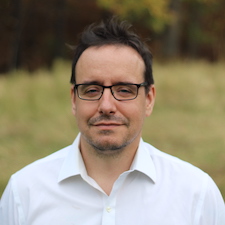My approach to therapy is much more than just talk. It focuses on making your life better in the most effective, efficient way possible. It is based on the most current research, it makes sense to my clients, and it is always designed to fit each person’s personal strengths, needs and resources. My clients typically walk out of my office with a more positive view of their relationships and greater understanding of what they need to do to make their lives better.
Therapy begins with a thorough assessment of the problems that you are experiencing so that I can determine which treatment approach is most likely to work. I also want to be able to help you better understand what is going on and what we need to do in order to make it better. We will then work together to form a structured treatment plan that is based on the most current scientific findings. We will carry that plan out in subsequent sessions, and you will be asked to practice certain skills at home between sessions. Techniques include, among other things, education, practicing behaviors, problem solving, gradual exposure to fears at a pace that you are comfortable with, and learning to more accurately interpret others’ intentions. I also use biofeedback when appropriate to help clients recognize and change their physiological response to stress and anxiety. For more information about biofeedback, click here.
My Philosophy: You always have control You should never be left in the dark. What happens in therapy should always make sense to you, and you should always be informed so that you can make your own decisions about treatment, and you should be given control of it. You should be informed of your condition, what causes and maintains it, how to fix it, and why. If anything does not make sense to you, it should be clarified.
Increasing the good while reducing the bad While almost all of my clients come to me because they are facing a problem in their lives such as stress, anxiety or relationship problems, it is important to remember that reducing problems is only part of what must be done. One of the first things that I do when working with clients is to help them identify areas in their lives that can be enriched through fun, connection with others, or self-fulfilment. And then I help them find ways to pursue these goals.
I use only the best approaches Only the most proven, most current, and most appropriate approaches should be used. Specific approaches should be used for specific problems, and they should be administered by a psychologist who understands and knows how to administer them properly. Clients should be given choice and power to make their own decisions about therapy. Therapy should never take longer than it needs to, and it should fit the specific needs and strengths of the client. And if treatment isn’t working after an appropriate amount of time, it should be altered to give the client a better chance of getting better faster.
My work focuses on the whole person It is not enough to focus only on one’s thoughts and feelings. If we try to understand problems in overly simplistic ways, they are often more difficult to solve. Problems with our emotions, our thinking patterns and our relationships cannot be properly solved without a holistic understanding of the biological, the psychological, and the social aspects of the person.
- Biology: Biological issues such as hormone imbalances, medication side-effects, smoking, fatigue from problems sleeping, and diseases such as diabetes can have a dramatic effect on emotional well-being, intellectual functioning and memory, and relationships with other people. I typically refer my clients to a physician for a medical evaluation in order to ensure that a given problem is not at least partially medical in nature and so that I have a full understanding of medical problems that the person might be suffering from.
- Psychology: An ability to think flexibly about routine daily problems, to see safety in a safe situation, and to see the good even in people you don’t like can make you physically healthier, while making your relationships with family and friends stronger and more rewarding. But it c an also go the other way. Mental processes such as worry, a tendency to jump to conclusions or to blow things out of proportion, or overly negative views of one’s self or others can have dramatic effects on physical well-being and on relationships with others.
- Social Relationships: Extensive scientific studies have demonstrated that positive and rewarding relationships can have a positive (and sometimes curative) effect on both psychological and medical problems. On the other hand, relationship problems can drastically increase both physical and mental stress and lead to physical and mental disorders, which in return can have a negative effect on relationships, creating a self-perpetuating cycle. Thus, social relationships are almost always a significant focus of my practice, assuming that is what a given client wants.
- Lifestyle change: I also help my clients to find better ways of living a healthier lifestyle, which can have a dramatic effect on the mental well-being of any person, including reducing the severity of depression and panic attacks, as well as overall stress levels. But because lifestyle change is hard, my skills as a psychologist are often very effective in helping clients to find easier and more effective ways of motivating themselves toward positive change.

